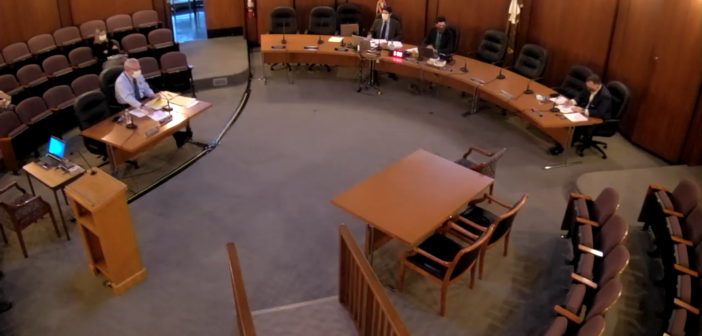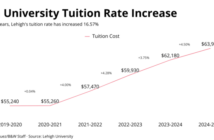Bethlehem’s Climate Action Plan held its second virtual public meeting on Oct. 7 to outline the strategy and action areas that will be included in the next step of the plan. Members of the public had opportunities to provide input on the proposed strategies throughout the meeting.
The plan includes efforts to reduce waste in the city, cut greenhouse gas emissions and involve stakeholders from marginalized communities.
The Climate Action Plan is headed by the Bethlehem-based engineering firm WSP and science-based community center Nurture Nature Center and receives input from the public and the city’s Environmental Advisory Council. The plan is Bethlehem’s city-wide roadmap to increase adaptation and resilience to climate change while delivering additional benefits to the community.
Jeff Irvine, project director at WSP, provided background on the Climate Action Plan and presented the eight strategy and action areas of the Climate Action Plan: buildings, transportation and mobility, local food and waste, electricity sourcing, education and engagement, land use and green space, adaptation and resilience, and environmental justice and equity.
Irvine presented a chart of community input on Climate Action Plan objectives from the first meeting in June that showed the two leading issues mentioned by the community were health/quality of life and environmental equity.
Community members identified reducing greenhouse gas emissions and local air pollution as two goals that should guide the development and prioritization of strategies in the Climate Action Plan.
Councilman J. William Reynolds said he is “excited to see change in our city.”
Buildings, as the largest source of emissions in the city, was an area of focus at the meeting. The Climate Action Plan aims to reduce greenhouse gas emissions from buildings by 30 percent by 2030. There are goals of expanding disclosure of building energy use to the public, decreasing buildings’ fuel carbon intensity and increasing energy efficiency of existing and new buildings.
The discussion focused on four areas of the strategy. The first area was education and engagement. Irvine presented an objective to create the “Bethlehem Climate Challenge” program to educate the community about climate change. The public identified increasing environmental education from K-12 as the highest priority for the community.
The second area of focus was transportation and mobility with an objective to reduce transportation greenhouse gas emissions by 30 percent by 2030. Some of the mitigation strategies identified as priorities were enhanced LANTA bus service, including expanded service and improved convenience, and providing “safe routes” for pedestrians in and around town.
The next area was local food and waste. The main objective is to achieve zero waste by 2040, featuring goals like adopting a “reduce first” approach and minimizing waste, maximizing waste diversion from landfills, developing better tracking of Bethlehem’s waste streams, reducing the impact of waste collection and enhancing the local food system.
Citizens identified requiring retailers and restaurants to donate, reduce, reuse, or compost their unsold food as a high priority mitigation strategy.
Another area was environmental justice and equity, something that Irvine called a “key part” of the overall plan. The two main objectives are to ensure at least 40 percent of overall Climate Action Plan benefits go to frontline communities and to establish a just and ethical long-term climate framework to support equity for all Bethlehem residents.
“There was a groundswell of support and interest by the community for this area,” Irvine said.
Kathryn Semmens, science director at the Nurture and Nature Center, said they are partnering with groups like the Hispanic Center and doing outreach programs.
“We are making sure these voices are heard,” Semmens said.
Irvine emphasized the importance of community engagement and presented ways to stay engaged, such as filling out the city’s survey to help determine priorities. The survey is available to the general public until Nov. 1.
Irvine said the goal is to hold another public meeting in November to gather feedback on a draft Climate Action Plan.






Comment policy
Comments posted to The Brown and White website are reviewed by a moderator before being approved. Incendiary speech or harassing language, including comments targeted at individuals, may be deemed unacceptable and not published. Spam and other soliciting will also be declined.
The Brown and White also reserves the right to not publish entirely anonymous comments.
2 Comments
The Democrats are very, very busy redistributing tax money among themselves and virtue signaling to the rest of us how lucky we are they kept our money.
Once again an apparently innocuous comment without personal insult or any objectionable language has been removed by the Lehigh censor.